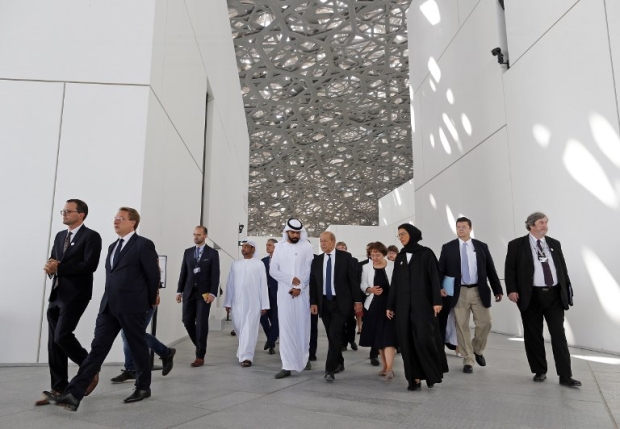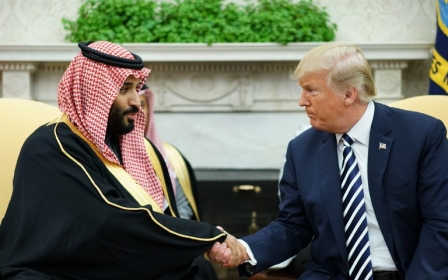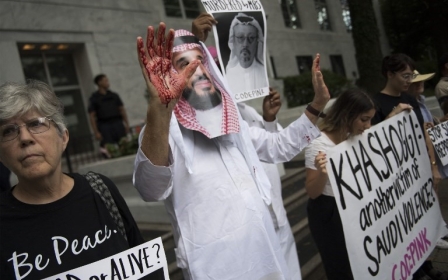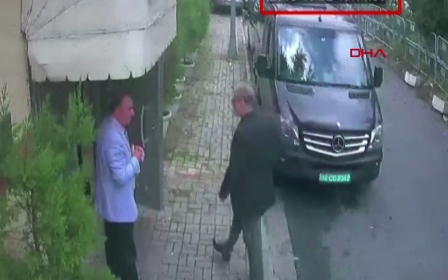Europe has turned a blind eye to Arab tyranny in pursuit of profit
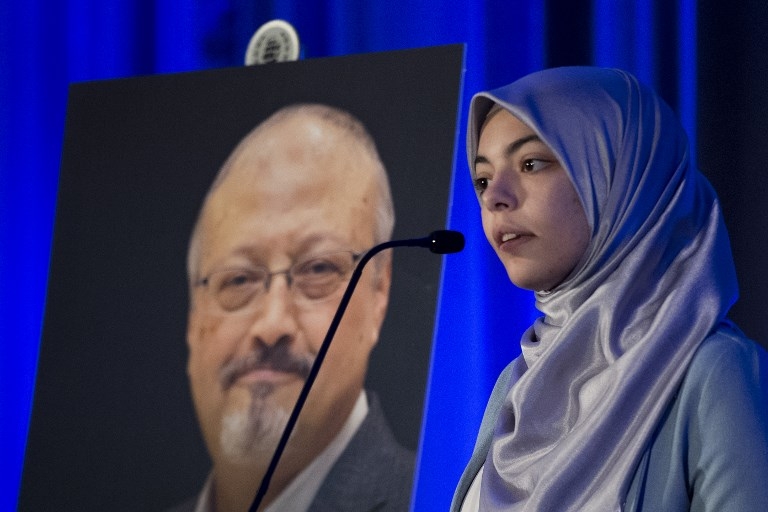
The appeals by European countries for democratic reforms and basic human rights in the Arab world appear to be a thing of the past.
After the popular Arab Spring uprisings of 2011, many European countries stressed the importance of regional democratic values and human rights. Yet, this tone was quickly replaced by other priorities, such as national security, fighting terrorism and stopping migration. Soon, Europe returned to rolling out the red carpet for corrupt tyrants.
In the Arab world, an alternative plan for democratic change has been developed, with an air of European approval. It is based on the consolidation of tyranny and the deprivation of freedoms on one hand, and the presentation of an image of society’s "openness" and Western values on the other.
Despotic propaganda
Permitting women to drive cars served as a perfect opportunity to polish the global reputation of Saudi rulers. Movie theatres are being launched in countries that censor free speech, and branches of Western universities and museums, including Sorbonne and the Louvre, have opened in the United Arab Emirates - even as the country fails to uphold the values of the French revolution.
While people in these countries are still deprived of basic freedoms and prohibited from participating in politics, the despotic propaganda is enriched through partial social reforms. To silence the public, these regimes condemn any form of dissent as radicalism. Their lists of terrorist groups have become a tool to demonise civil society organisations that they consider a threat.
Europe’s politicians have accepted and colluded with the alternative approaches of these tyrannical regimes, rather than continuing to push for a democratic system in the Arab world that guarantees public freedoms and human rights
Tyrannical regimes use the language of anti-terrorism to market themselves as being focused on safety and stability, fostering close ties with Israel, the “trusted partner” in combatting terror. These governments have also announced strategies for social change and altering religious interpretations in favour of the regimes.
To strengthen their policies and give the public a veneer of cheerfulness, these regimes have increased the prevalence of entertainment facilities and festivals, aiming to cover up the dark truth of their repressive rule. It is comparable to taking hallucinogenic drugs to escape the misery of reality.
Turning a blind eye
Rather than continuing to push for a democratic order in the Arab world that guarantees public freedoms and human rights, Europe’s politicians have accepted and colluded with the alternative approaches of these tyrannical regimes. Thus, the old tyranny persists with increased oppression and silencing, all the while benefitting from the assured Western support of leaders who turn a blind eye to various violations, especially in the era of US President Donald Trump.
By relentlessly targeting all forms of free political and civil work, these tyrants have put maximum effort into preventing a resurgence of the Arab Spring. Since the 2011 uprisings began on platforms such as Twitter and Facebook, the authorities have employed “electronic armies” to go after critical expressions.
While European governments have issued many news releases in the past few years in reference to prisoners of conscience in some Arab countries, this has not affected bilateral relations and actively growing partnerships between the tyrannical leaders and European governments. These relations serve as a cover for ongoing violations.
Weapons deals
Guaranteeing democracy, human rights and essential freedoms have not been a priority for Europe in recent years. Strategic interests and economic contracts, along with the drive to stop the influx of asylum seekers from reaching Europe apparently remain of greater significance.
European capitals have chosen to look away from the spread of authoritarianism and repression in the Arab world, shifting the discussion to other subjects. European decision-makers know that these Arab leaders will work faithfully towards their strategic interests, including multi-billion-dollar arms deals.
Last month, the death of Jamal Khashoggi presented an unexpected turn - but what happened to the prominent Arab journalist is not an isolated incident. Rather, it is only the latest among many violations by Arab regimes that are still welcomed warmly in European capitals.
The main lesson of Khashoggi’s agonising case is that sweeping tyranny, rights violations and brutal practices under the rug is not a sustainable strategy. Ignoring violations in order to smooth lucrative business ties only encourages the tyrants to act with impunity.
- Hossam Shaker is a researcher and author, and a consultant in media, public relations and mass communication for a number of organisations in Europe. He resides in Vienna and has an interest in analysis of European and international affairs, as well as social and media issues.
The views expressed in this article belong to the author and do not necessarily reflect the editorial policy of Middle East Eye.
Photo: A senior organiser for the Democratic National Committee, Abrar Omeish, speaks during a remembrance ceremony for Jamal Khashoggi in Washington on 2 November 2018 (AFP)
New MEE newsletter: Jerusalem Dispatch
Sign up to get the latest insights and analysis on Israel-Palestine, alongside Turkey Unpacked and other MEE newsletters
Middle East Eye delivers independent and unrivalled coverage and analysis of the Middle East, North Africa and beyond. To learn more about republishing this content and the associated fees, please fill out this form. More about MEE can be found here.



